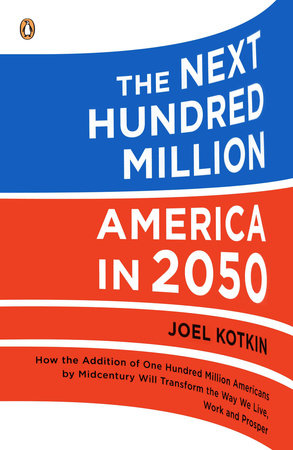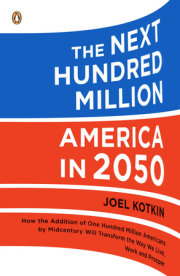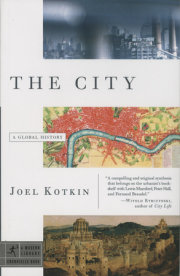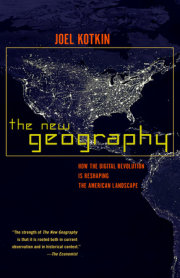Visionary social thinker Joel Kotkin looks ahead to America in 2050, revealing how the addition of one hundred million Americans by midcentury will transform how we all live, work, and prosper.
In stark contrast to the rest of the world's advanced nations, the United States is growing at a record rate and, according to census projections, will be home to four hundred million Americans by 2050. This projected rise in population is the strongest indicator of our long-term economic strength, Joel Kotkin believes, and will make us more diverse and more competitive than any nation on earth.
Drawing on prodigious research, firsthand reportage, and historical analysis, The Next Hundred Million reveals how this unprecedented growth will take physical shape and change the face of America. The majority of the additional hundred million Americans will find their homes in suburbia, though the suburbs of tomorrow will not resemble the Levittowns of the 1950s or the sprawling exurbs of the late twentieth century. The suburbs of the twenty-first century will be less reliant on major cities for jobs and other amenities and, as a result, more energy efficient. Suburbs will also be the melting pots of the future as more and more immigrants opt for dispersed living over crowded inner cities and the majority in the United States becomes nonwhite by 2050.
In coming decades, urbanites will flock in far greater numbers to affordable, vast, and autoreliant metropolitan areas-such as Houston, Phoenix, and Las Vegas-than to glamorous but expensive industrial cities, such as New York and Chicago. Kotkin also foresees that the twenty-first century will be marked by a resurgence of the American heartland, far less isolated in the digital era and a crucial source of renewable fuels and real estate for a growing population. But in both big cities and small towns across the country, we will see what Kotkin calls "the new localism"-a greater emphasis on family ties and local community, enabled by online networks and the increasing numbers of Americans working from home.
The Next Hundred Million provides a vivid snapshot of America in 2050 by focusing not on power brokers, policy disputes, or abstract trends, but rather on the evolution of the more intimate units of American society-families, towns, neighborhoods, industries. It is upon the success or failure of these communities, Kotkin argues, that the American future rests.






